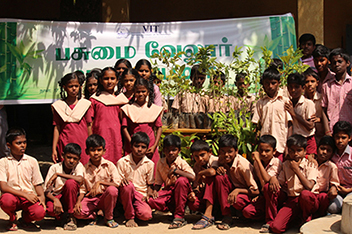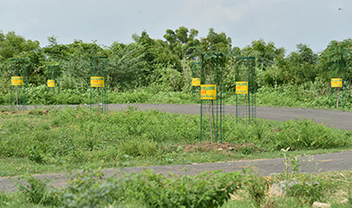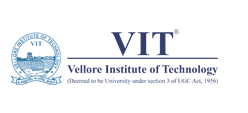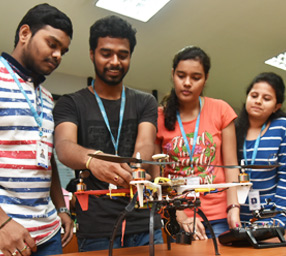Projects & Programmes
Unnat Bharat Abhiyan - 2.0
Unnat Bharat Abhiyan - 2.0
VIT, as a professional higher education institution, contributes directly to the development of the rural sector. We have adopted five villages under UBA to address the huge developmental disconnects between the rural and urban sectors, such as inequity in health, education and basic amenities as well as creating employment opportunities The imperatives of sustainable development demand an eco-friendly de.velopment and the creation of appropriate employment opportunities. The students have learnt the urgent need for technology development for rural areas to address their day to day challenges. The vision is to bring transformational change in rural development processes by leveraging knowledge institutions to help build the architecture of an inclusive India.
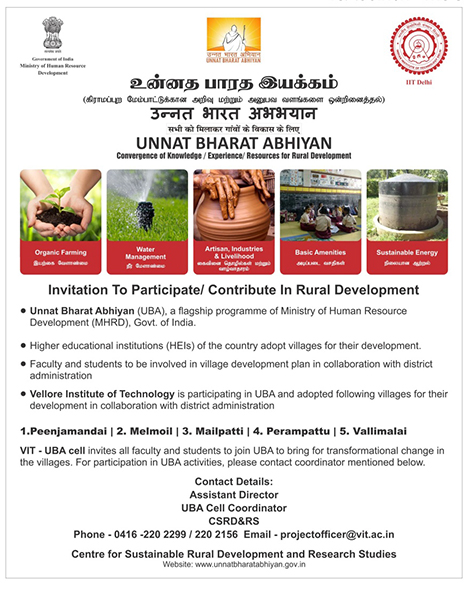
Students engaged in Baseline line Survey of Households in adopted villages
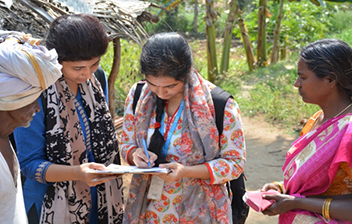
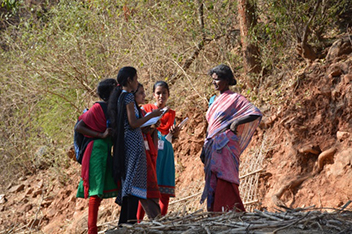
Rural Internship for Holistic development of Villages
Unnat Bharat Abhiyan 2.0 is inspired by the vision of transformational change in rural development processes by leveraging knowledge institutions to help build the architecture of an Inclusive India. To scale the noble objective, students of VIT- CSRD&RS formed a Group of 40 Rural Volunteers and access the villages via PRA and development activities. The ultimate objective of the programme is to invent or innovative ideas particularly which can be easily scaled up to rural areas. To improve the sanitation condition, improve the hygiene condition, promote entrepreneurship, increases the employment opportunities, women empowerment youth and women.
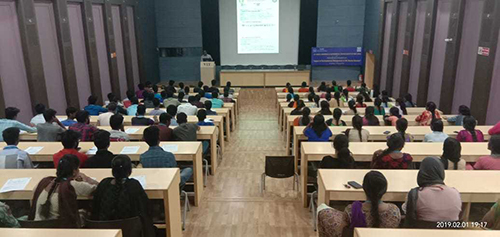
Tribal Development
Empowering Tribal Community
The National Bank for Agriculture and Rural Development (NABARD) has launched a Joint Liability Group (JLG) scheme to provide access to institutional credit for small, marginal, tenant farmers, and oral leases and share croppers. JLGs are essentially credit groups of small/marginal/tenant farmers/asset less poor who do not have proper title of their farmland. These informal groups of 4-10 members are engaged in similar economic activities and are willing to jointly undertake to repay the loans taken by them from the Banks on individual basis through group mechanism against mutual guarantee.
CSRD&RS is an endorsed JLG Promoting Institutions associated with NABARD Tiruvannmalai and extends his supports via financial support for awareness creation and capacity building of all stakeholders under the JLG Scheme In Jawadhu Hills, Tiruvannmalai District consists of 11 Village Panchayats.
From the year 2013-14 to 2019-20, CSRD&RS linked 147 JLGs and 19 farmers group for credit linkage for an amount of Rs.4.42 crores with support of NABARD and Indian Bank, Jamunamarthur . Every year the Mega Loan mela will be organized and disbursement of loans to JLGs for livelihood development activities with subsidy.
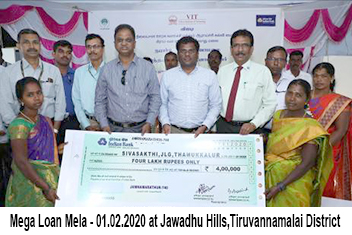
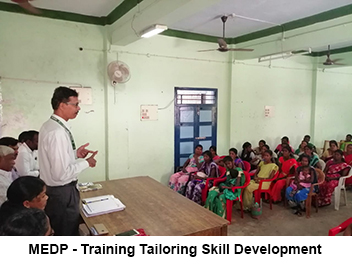
Major Economic Development Activities
- Milch cow and sheep rearing.
- Honey Processing and value addition.
- Millets Processing ,Trading and value addition products.
- Tamarid processing and value addition products.
- Mushroom Value addition products.
- Jack fruit value addition products.
- Bamboo Value addition products.
- Forest Produces Trading – Amala, Kadukai, Tamarind etc.
- Food Processing.
- Bee Keeping.
- Sericulture
Skill Development
Entrepreneurship Development Programme
The CSRD&RS and National Research Development Corporation (NRDC), Government of India, with the objective to promote, develop and commercialize the technologies got the approval for conducting EDP training programs for rural areas of Vellore under the administrative control of the Dept. of Scientific & Industrial Research, Ministry of Science & Technology.
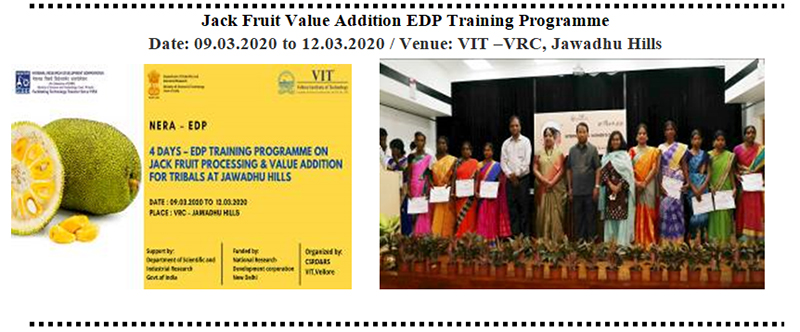
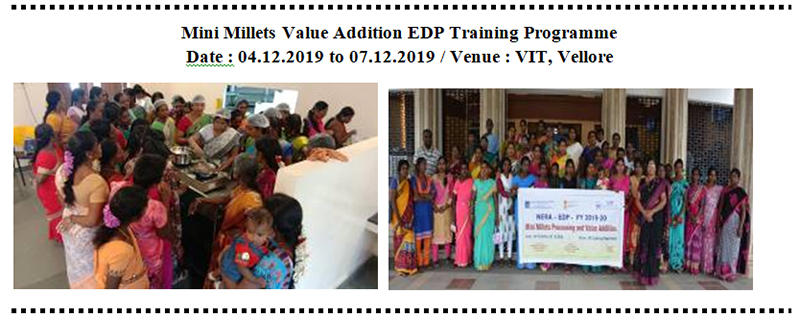
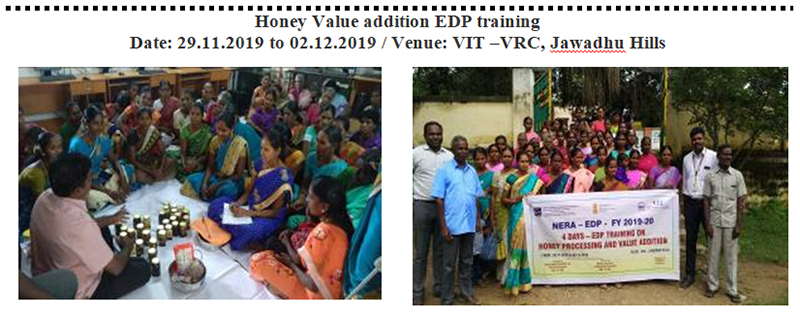
River Restoration
Clean River Palar
The River Palar is the prime water source for Vellore City and nearby villages, which covers nearly about 4 km in Vellore corporation limit. The river has been exploited by dumping of solid and liquid wastes and growth of Prosopis Juliflora, a shrub which depletes the water table of river and water bodies.
VIT, initiated the Clean River Palar Project to restore the livelihood of the river, in collaboration with the Civil Society Organizations, Community Based NGOs, Merchant associations and Philanthropists in and around Vellore District.
The project implemented under the guidance of the District Collector and VIT has signed an MOU with the Public Works Department and Water Resource Department to clean and restore the habitat of the River Palar. Nearly around 1,14,00,000, Sq.feet of Prosopis Juliflora shrub has been successfully removed from the riverbed and restored the flow of river Palar.
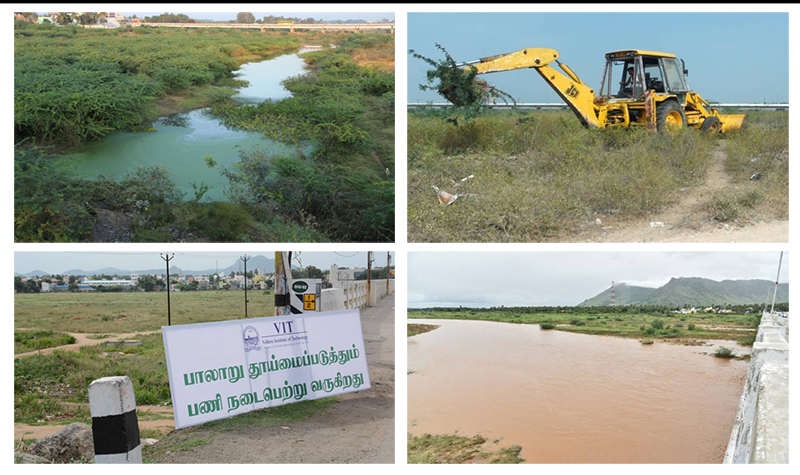
PURA
PURA – PROVISION OF URBAN AMENITIES IN RURAL AREAS
PAVES WAY FOR SUSTAINABLE RURAL DEVELOPMENT
PURA is the dream programme initiated by His Excellency “Bharat Ratna” Dr.A.P.J.Abdul Kalam, the Former-President of India for Provision of Urban Amenities in Rural Areas. According to him, one of the most important components of national development is PURA. Providing Urban Amenities in Rural Areas will eliminate the rural-urban divide. This model can be followed by other nations as well.
The Mission of PURA:
The number of PURA units for the whole country is estimated to be 7000. This envisages integrated connectivity for ensuring prosperity in rural India. This includes physical connectivity of village clusters through quality roads and efficient transport, electronic connectivity through telecommunication with high bandwidth fibre optic cables in rural areas and through Internet kiosks, and knowledge connectivity through education, vocational training for farmers, artisans and craftsmen and conduct of entrepreneurship programmes. These three aspects of connectivity will lead to economic connectivity through the establishment of enterprises with the help of banks, micro-credit agencies and marketing of the products. Each PURA cluster will connect about 20-30 villages depending upon the region and population and will cost about Rs.100 crores. This is a viable and sustainable business proposition. Following the initial short-term employment opportunities arising from construction, etc, plans for providing regular employment and self-employment opportunities for about 3000 people or more in nationally competitive small enterprises, in agro-processing, manufacturing and services sectors will be made. If the industrial/business parks are marketed well, they can generate employment opportunities in support and services sector for about 10,000 people or more. This will provide a sustainable economy in the rural sector leading to the removal of the urban-rural divide. It will also help ease out the growing slums in cities by converting rural areas into attractive habitats.
Life Skill Development
Life Skill Development for Government School Students
Life Skill Development is implemented through GV School Development initiatives by the Centre for Sustainable Rural Development and Research Studies (CSRD & RS). We have reached 302students in 6 Schools. From VIT - CSRD & RS team, with support of Vellore School Education Department support in implementing this esteemed programme.
The training includes and promotion of skills and attitudes such as self-awareness, empathy, communication, interpersonal skills, decision-making, problem-solving, creative thinking, critical thinking, coping with emotions and stress, etiquette, gender sensitization, and others.
The curriculum is taught over 6 years from Grade 6 to Grade 12, with a gradual progression in the complexity of comprehension. Each lesson has five key objectives, which are taught through interactive learning by way of a game, song, activity, role play, case study, or discussion. Each video lasts 30 minutes, with on average 15 pauses built-in where in-class teachers can stop the video and facilitate the activities suggested on film. About 120 modules in total have been developed using this technology.
Currently, 55 Student Volunteers were engaged in the process of educating the government School students from 6th STD to 9th STD Students.

GV School Development Programme
GV School Development Programme
The VIT and CSRD&RS jointly organizing Performance award event for all Government schools in Vellore Districts with the School education department of Vellore District. Dr.G.Viswanathan, VIT Chancellor continuously working towards to improve the quality of infrastructure and education in government schools so that more children would be admitted in Government schools across the state and improve the education Quality & performance of Government schools.
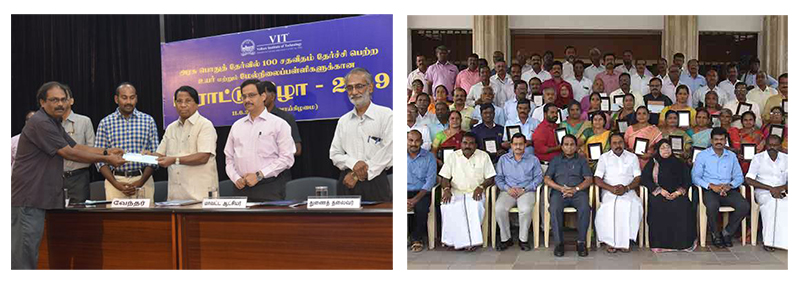
Entrepreneurship
Skill Development Programme – Govt.Of Tamil Nadu
The CSRD & RS so far organized training in 22 skill trades for employment and self-employment. So far, 2923 youths were trained and exclusive 25 & 15 days special coaching was conducted for 434 entrepreneurs under NEEDS scheme.
Objectives of the Scheme:
- To provide entrepreneurship training to transform educated youth to entrepreneurs.
- To assist them in project preparation and in getting financial assistance with 25% subsidy and 3% interest subvention.
- To provide them with a reservation of 25% in allotment of plots/sheds in SIDCO estates subject to availability.
- CSRD & RS, in collaboration with EDI (Entrepreneurship Development Institute) and District Industries Centre, train the candidates in various skills to groom them as successful entrepreneurs.
| Sl.No | Name | Start Date | End Date | No. of Participants |
|---|---|---|---|---|
| 1 | New Entrepreneur cum Enterprise Development Scheme | 24.02.2020 | 13.03.2020 | 26 |
| 2 | BM & BP for AIEDP Aspirants | 28.01.2020 | 30.01.2020 | 25 |
| 3 | New Entrepreneur cum Enterprise Development Scheme | 11.11.2019 | 29.11.2019 | 30 |
| 4 | New Entrepreneur cum Enterprise Development Scheme | 18.02.2019 | 08.03.2019 | 28 |
| 5 | New Entrepreneur cum Enterprise Development Scheme | 19.11.2018 | 10.12.2018 | 33 |
| 6 | Unemployed Youth Employment Generation Programme | 06.08.2018 | 20.08.2018 | 75 |
| 7 | New Entrepreneur cum Enterprise Development Scheme | 25.06.2018 | 13.07.2018 | 32 |
| 8 | New Entrepreneur cum Enterprise Development Scheme | 13.11.2017 | 12.12.2017 | 28 |
| 9 | New Entrepreneur cum Enterprise Development Scheme | 04.08.2017 | 05.09.2017 | 30 |
| 10 | New Entrepreneur cum Enterprise Development Scheme | 10.05.2017 | 09.06.2017 | 30 |
DST_NIMAT, EDII, GOVT.OF INDIA ( 2019- 2020)
To promote and strengthen Science & Technology entrepreneurship, the National Science & Technology Entrepreneurship Development Board (NSTEDB), Dept. of Science & Technology, Govt. of India established MoUs with CSRD&RS under the project namely “DST-NIMAT” On behalf of NSTEDB, DST the project is implemented by Entrepreneurship Development Institute of India (EDII), Ahmedabad.
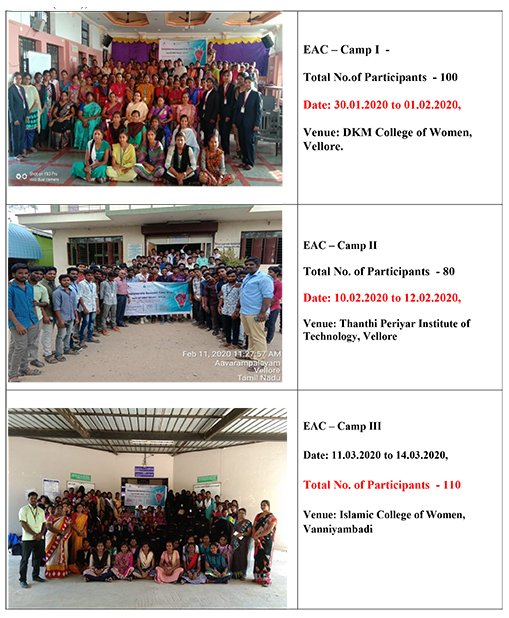
Contact Details
Centre for Sustainable Rural Development and Research Studies (CSRD&RS)
Dr. C R Sundara Rajan
Deputy Director - CSRD&RS
- Office : ALM Block - 203, 2nd Floor
- Landline : 0416 - 220 2299/2156
- Mail : projectofficer@vit.ac.in
Afforestation
Afforestation – Green Vellore
VIT has embarked upon the task of making Vellore greener and reducing the impact of climate change by planting tree saplings under its “Green Vellore” project. The conversion of the legal status of some land into tree cover land, an exclusive Afforestation Project.
Comprehensively around 15,000 saplings were planted since the inception of the project which was launched in August 2008 by the eminent scientist Dr.M.S. Swaminathan. The first phase of the project is about 6.8 km from Virudhampet Village to Brahmapuram Village. The project will be continuing process until Vellore City turns green. The objective of the project is to reduce the carbon emission and greenhouse gases and to bring a balance in climate change.
